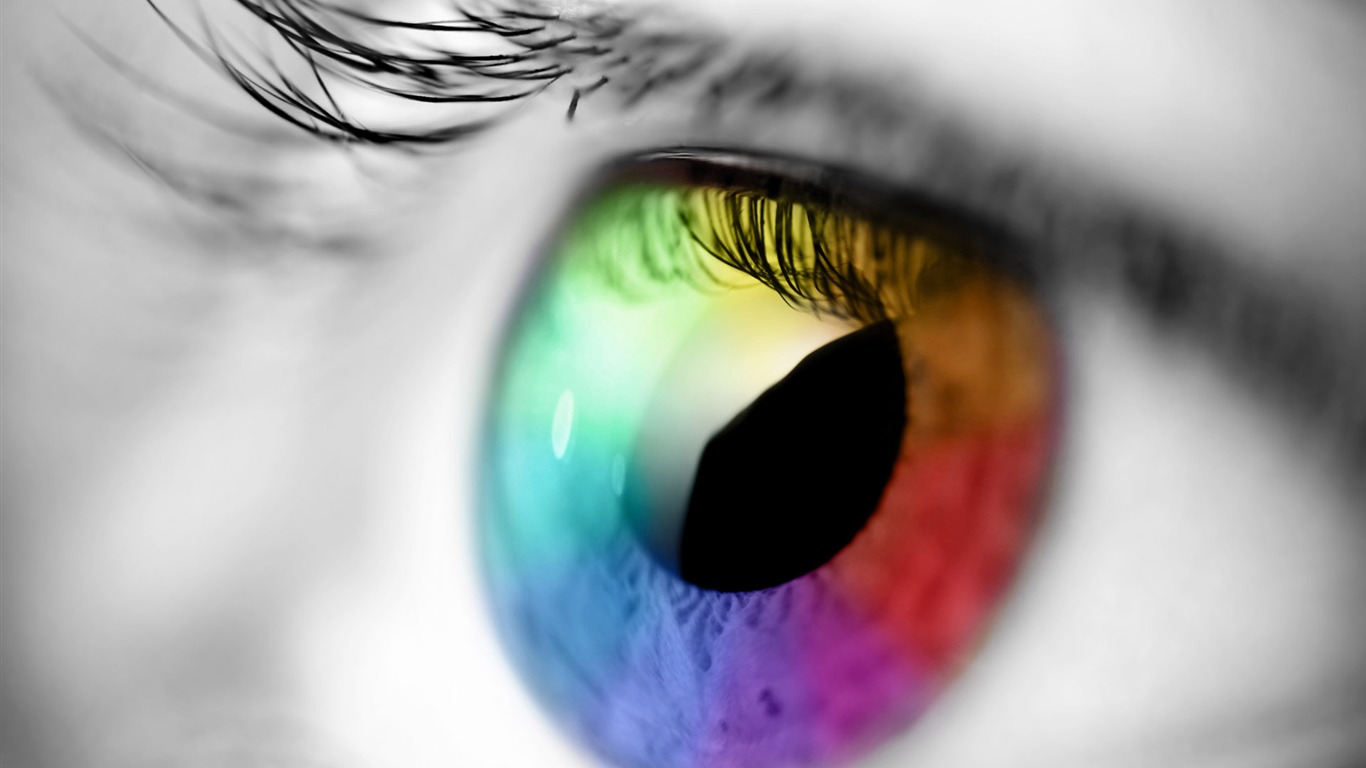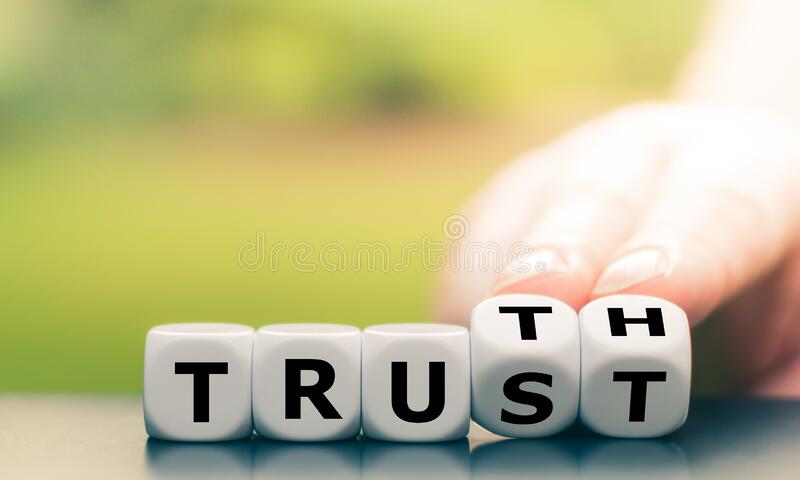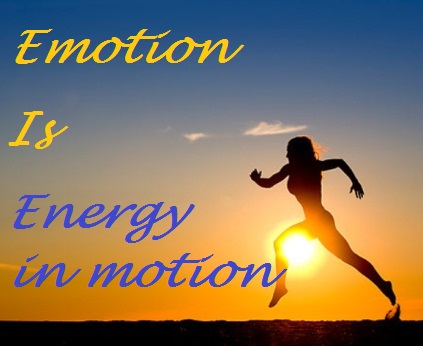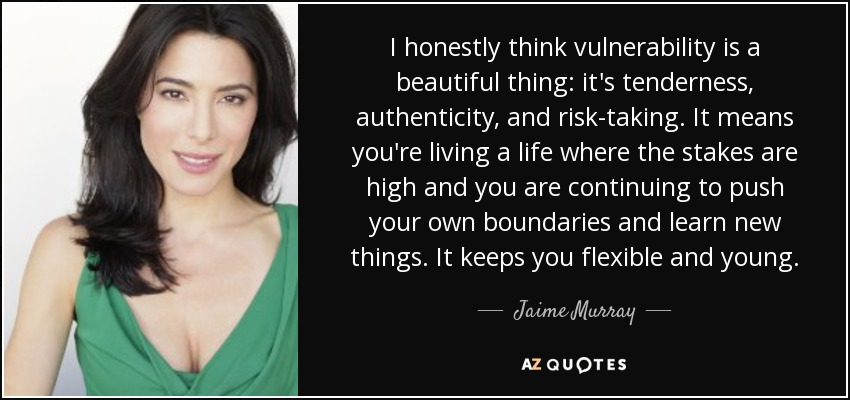
It is estimated that 50% of the population have some sort of trauma. If you’re traumatized, whenever you relax into the full reality of what you're actually feeling (if you breathe fully and you stop all action, for example), distressing emotions might come up. We then often do our best to avoid feeling them, and lose ourselves instead into compulsive action (addictions – work, sports and screens count as well), or into constantly relating to the outside world – when actually, feeling comfortable spending time in our inner world, with our own standards, will affect our capacity for healthier relating later on.
I was shocked to come across the fact that people who examine the least their own functioning, are the ones who create the most havoc around them. Yet we all are this person from time to time: it is a basic feature of being a human being to project our 'stuff' (repressed feelings transformed into judgments) onto others, to be blinded by the veil of differences in appearance or in behavior. When we feel that we are the 'good person', and we treat another as if they were 'bad, inherently flawed people', we are projecting our own self-suppression onto others, rejecting the full truth of who they -and we- are.
We do not see the world as it is: we see the world as we are.
Anaïs Nin
The more understanding and self-compassionate we learn to be with all of our sides, seeing them as complementary, and as able to talk, and find an aligned agreement between them (as in Richard Schwartz's Parts Work), the healthier the quality of our connections, and of our self-connection. We then do the least damage to people around us, as we are still able to relate to their inherent worth, and to ours. Only then can separation actually be peaceful, and connection deeply conscious - when both sides' deeper needs make sense to both parties, knowing everyone is functioning with the information and resources they have. Basically we can resonate with somebody else when we have explored ourselves.
It is important to realize that we mostly live in civilizations that do not allow for the healthy resolution of legitimate responses to disconnection: the ‘stiff upper lip’, ‘manning up’, and emotional self-contention never get resolved – even if we have addictive emotional outlets at our disposal – and instead create cultures where objectification (‘human resources’) and abuse (no time to rest nor decide over our own needs and schedules, not feeling safe to have a roof over one’s head and food on the table, constant criticism with no help nor resources) leave a lot of damage in their wake. When crying is seen as 'weak' (instead of as a normal consequence of loss of something important and valid to that person), shame of sadness can lock the tension of anger in a disconnected/numb or overactivated/oversensitive body - which then needs to be escaped, numbed or used - and is vulnerable to manipulation, since 'there is nobody home' (when we are not feeling and trusting our bodies, we are cut off from the ultimate source of power). Or it can turn into systematic aggression against self or others.
It’s not your fault if you have addictions, it’s not your fault if you get intensely triggered by people who don't deserve your emotional reaction. It's not your fault if you haven't found a constructive way to deal with your emotions. We are all part of a system that actively discourages listening to one's emotions, starting in infancy. A system that exclusively rewards compliance, performance, individual success and appearance at the expense of relational safety, physical well-being and authentic, compassionate (self-)connection will encourage, and reward specific behaviors – and trigger unresolved, trapped feelings in the body and the subconscious mind (often for women/ the feminine inside of us - violence is turned inwards), or encourage violence (traditionally for men/ the masculine in all of us - violence can be turned outwards). And if those repressed, intense feelings are taboo, or if there is no time, or no one to process them with, they will either explode at inconvenient, uncontrolled times, or get stuck in the body in the form of stiffness, pain or dis-ease. Put people in the 'right' conditions (aka, 'your deeper needs are wrong, or don't matter), and they will tend to behave according to the framework in place (violence against self or others). Our deeper needs do indeed matter. When we are connected to our deeper needs, we are a better influence on this interconnected world. More true love (for ourselves, for others - because then we can really see them, since we see ourselves with reality-based, unconditional love) then propagates across the system.
Let’s examine what happens if a child is subjected to repeated, long-term, forceful demands to comply and obey – with no regard for their own feelings/ emotions/deeper needs, considered ‘childish’, 'too much', 'acting out', ‘theatrical’ and ridiculous (you can also try replacing the word 'child' with any 'minority', and replace the word 'parents' with any authority figure that's in place). Now let’s say the parents are themselves so caught up in an outwards-driven system of fitting-in-at-all-costs (to the true self), in a fear-based race of smiling, ‘normal’, 'order-only' conformity (at the expense of pain that could not find its place, ever). The relational pain and lack of trust this lack of space for one's own suffering and deeper needs this will engender, will trigger parents, who will then pass this emotional repressed energy to the child – as a form of felt taboo & physical rigidity, at the place/ level of the emotional and informational hurt (see our emotional centers or chakras, found to have a higher concentration of receptors along the spine).
The natural response when one is hurt or neglected, is to fight (to demand care and protection) or to flee. If one cannot do any of these (and children can’t - they are litterally at the mercy of their caretakers, as are many adults on the vulnerable side of a power imbalance), and with the emphasis on ‘keeping things normal’ and ‘reasonable’ in society as well as in the family – and expressing this hurt is seen as ‘complaining’ or ‘wanting attention’, the root cause never gets addressed: someone is being harmed, neglected, or both. Multiply this by millions, and that’s how you create massive (chronic) illness, emotional suppression turning into denial - which is a really fertile ground for projection (= seeing someone else as a monster, when we are afraid of living the quality they are displaying, because of the fear of punishment we were traumatized by - rather than seeing them as human, thus incomplete, and trying to do something they see is missing in the world - albeit imperfectly: we are always in movement, never complete. It's the fate of being alive, and human. It is what drives evolution). Getting out of this cycle requires the creative courage to face our biggest fears with trust.
So what do we do?
Seeing the validity, and healing power of raw, powerful emotional responses is a good start.
The expression of pain is not a sign that this person is flawed - for not complying, or for not being 'normal': demanding obedience only is a sign that the relationship is not between two equally valid people. If we insist on obedience, we imply that one person/side matters, is reasonable, and knows; and that the other person/side does not have their own wisdom, valid emotions and precious contribution to the expansion of our own awareness. Our frustration only highlights a hidden hierarchy in our own brains.

Emotions were stored in the body, because of a wise bodymind survival coping mechanism, which pushed back the awareness of the trauma into the subconscious at the time, where it was necessary to push back angry, hopeless, or even self-valuing (proud, dignified) feelings into our subconscious to survive with the people around us, and to continue to function. If we were unable to fight, or flee the situation, to safely feel or to discuss what had happened to us, we adapted by judging those feelings, too – and repressing them (in other people, too), whenever they came up. This mechanism can go on forever if not looked at.
When this happens – when the pain of not being able to connect to one of our sides goes ‘silent’ – when we pretend we are ‘OK’ and ‘normally-functioning individuals’ even to ourselves (because we’re not aware of this pain of disconnection anymore), we can become judgmental, hypervigilant or compulsive (not really thinking/deciding before taking action), desperately trying to meet our need for connection.
The damage was relational: the cure is also relational.
It is about re-learning unconditional, free and loving connections; it's about valuing, and making safe spaces for safe and loving emotional release. It is about re-dignifying, understanding the validity of the response to environmental stressors of crying, anger, pride, or real, raw fear: all these were the most logical response in the face of what happened, or is still happening; when we allow them to come out, we are signaling to the body, heart and mind that they are safe to all get onboard to resolve the hurt. They do not mean we are flawed, or that they will last forever. Just like in children, with love and holding, the emotional response eventually (sometimes quickly!) comes to an end. Emotions need to be heard, validated, and seen for what they are: a healing response. They mean that we are now safe to fully feel the extent of what was stored in us (what couldn't come out at the time, now can - being held in unconditional love allows for healing). Of course, removing the cause of harm makes it possible to not have to heal constantly.
This is possible if the other person is a good fit for this part of us (they do not feel threatened themselves), or due to their growing to an enhanced version of themselves (through self-examination and an expansion in the range of feelings and behaviors they can take on). The ‘holding’ person sees more of themselves than the cultural training has allowed them to see themselves so far: they see themselves in you – and that can only happen if they learn to look for more qualities, more ways to be a human being worthy of love and connection (while feeling safe themselves, and like their have agency/power).
Restoring the relationship with different parts of ourselves, allows us to be in loving relationships with others, where they can be themselves, because we allow a wider spectrum of what is good in everyone. We train ourselves to see more goodness, in different ways. When doing that inquiry work, we can learn from others, other souls, other bodies, other hearts, other minds: no matter how they are behaving, we can find and feel our mirror connection.
Here is a first path of inquiry - when feeling upset at -or by- someone:
What is this person’s unique contribution to the world? Try to look into their unique flavor of self? (train yourself to look for positive qualities; this is excellent for your own resilience and sense of feeling connected to people around you).
How are they demonstrating resilience, wisdom, life-energy and resourcefulness in finding their way?
How am I similar to them? Where in my life do I experience the same emotion or situation? How am I like them?

A funny key to allowing more of yourself: often, our self-care is exactly what others need! That might mean taking a break, connecting with our own emotion, stretching in the bathroom stall, or taking a breath of fresh air. We reflect each other: we just need one person to be OK with taking care of their own well-being as a conduct for a better relationship, for a lot of patterns to be resolved. What stands in the way of healthy relating is this notion of self-sacrifice, or amputating a part of yourself (‘being tough’, 'never letting anything phase you' are parts of this, as are the self-sacrificing, ever-giving mother and female archetype): in essence, we learned that if we self-suppress, the other will feel better, or that we will get our way in the world, that people will like us better. They won’t feel better on the long-term, nor like our true self better. Deeply, we liberate others to take care of their most vulnerable selves by taking care of our most vulnerable self – knowing we are all worthy of love, belonging, and protection. In this way we break the cultural neglect and abuse chain. It cannot survive without our own emotional and physical self-suppression. When we claim our right to be vulnerable, or to be strong - beyond the cultural 'types', we decide that we are safe enough to be more of ourselves and to still be loved, our bodies can release emotions (fear, sadness, anger, sexual energy or strong, embodied self-love). The now welcome emotional release allows the subconscious back into conscious awareness – for a more integrated, fully vibrant self.
This frees up the way for feeling gratitude and connection – to oneself, to others, to the planet, etc: erupting laughter, loving sexual energy or absolute gratitude might be the unexpected, joyful results of connecting to, and attending to one’s vulnerability – as a loving parent would.
Let's try with this example (take a minute to pause, take a deep breath, feel your body resting on the ground/floor, situate/look around you, take a deep breath, exhaling slowly as if through a straw, repeat, feel your basis - now resume reading):
Try to soak in this person, as if they were in front of you, speaking you, and observe your emotional, physical reactions, as well as the thoughts that pop up.

Observe your own emotional reaction. Try to understand yourself, first:
How does looking at this person affect you? Try not to analyze with your thinking mind: instead, try to go to a place of feeling, of resonating with the words or the image you see - maybe it's in your chest, maybe it's in your belly - just give the sensation or the emotion space to be.
What is it touching in you? Does it have a place feeling, a temperature in your body?
- If the reaction is pleasant, let it grow, let it take more space in your body, so that it becomes how you fully feel today. (You can do this with anything you enjoy by the way!
- If the sensation is triggering unwelcome emotions/reactions, ask yourself: how can you stay present to the sacredness of your experiencing? ('Sacred' means that you honor the presence of your emotion, like Rumi's varied emotional guests in his bodily home: treat all your emotions like honored guests: listen carefully, watch them, be there, attentive to them, curious about what next will unfold - and in due time, they will take their proper place, and deliver their gift).
- This may start by growing an inner sense of safety, first – remember you can always feel your body, your breath soothing you from the inside - then feeling how you are, right now, from this space, feet on the ground, this physical environment around you.
- If it's difficult to stay present, having someone else to help you hold the space of presence can be tremendously helpful (a meditation, mindfulness teacher, dance movement therapy, coaching, friend or mentor, family member...). Presence *to what is* is what matters.
If you stay present to your emotion for 90 seconds, it will transform into a deeper understanding (the 'gift'). If your attention is a bit wobbly the first few times, it's normal, it's a practice - take your time, and try again, and again. Or use the support of the spaceholder/therapist/friend of your choice. You can also do this drawing, writing, dancing, making pottery or chopping wood! - you name it. It's simply a mindfulness (heartfulness!) practice: let emotions come, be witnessed with respect and curiosity, and go/ transform into something else!
What is the sacred understanding your emotional reaction revealed? What do you deeply value?
Allow the experience of this deeper need/value to grow within your body, up until you feel fulfilled by this emotional sensation.